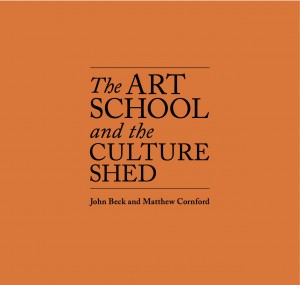Posts from April 2014

Photography and Abstraction: A Symposium
REGISTRATION NOW CLOSED. Apologies – we have been inundated with an unexpectedly large number of RSVPs and can no longer fit in any further attendees.
Friday 9 May 2014, 10.00 – 6.00 (followed by drinks)
Room 501, University of Westminster, 309 Regent Street, London W1B 2UW
PROGRAMME:
10.00 Coffee
10.30-12.30 Panel 1
Mark Dorrian (Edinburgh), “Medium/Violence/Abstraction”
Andy Fisher (Goldsmiths), “On the Scales of Photographic Abstraction”
David Bate (Westminster), “Daguerre’s Abstraction”
Chair: David Cunningham (IMCC)
12.30-1.30 Lunch
1.30-3.30 Panel 2
Clare Birchall (King’s, London), “Aesthetics of the Secret”
Peter Adey (Royal Hollway), “Capture and Testimony in the Art of Levity”
Ella Chmielewska (Edinburgh), “Writing Between the Photograph and Abstraction”
Chair: John Beck (IMCC)
3.30 Coffee
4.00-6.00 Panel 3
Joanna Zylinska (Goldsmiths), “Photography After the Human”
John Roberts (Wolverhampton), “Ideation and Photography: Critique of Laruelle’s Concept of Abstraction”
Chair: Sas Mays (IMCC)
6.00 Drinks
Free Entry. All Welcome. RSVP: cunninda@wmin.ac.uk

Westminster’s Centre for the Study of Science and Imagination has a visiting scholar in residence immediately after the Easter break. Professor Janine Rogers will be with us from Canada and will be giving a seminar on the importance of literature for science writers, including a discussion of Chaucer and Brian Cox, on Monday 28 April at 5pm in the University of Westminster’s Regent Street building (room UG05), and a masterclass on form in literature and science scholarship on Wednesday 30 April at 3pm in Wells Street (room 206).
Further details on the SCIMAG website here: http://www.westminster.ac.uk/scimag/events

The Natural History of Memory Inaugural Seminar (hosted by the Cultural Memory Seminar Series, sponsored by the Department of English, Linguistics, and Cultural Studies, University of Westminster)
17th May, 11 am – 4 pm. Room G37, Senate House, University of London.
Speakers:
Professor Anna Reading (King’s College London), ‘Where Do Clouds Come From? A Natural History of Digital Memory’
Dr Frank Uekoetter (University of Birmingham), ‘The Boll Weevil, the Post-Slavery Plantation, and the Global World of Monoculture’
Dr Jakob Stougaard-Nielsen (UCL), ‘London Submerged: Eco-Fictions of a Vanishing Present’
Chairs: Drs Lucy Bond (Westminster), Rick Crownshaw (Goldsmiths), Jessica Rapson (King’s)
The Natural History of Memory explores the ways that environments register and mediate the memories of catastrophe and injustice. Moving beyond Walter Benjamin’s conception of natural history as the naturalization of historical events and their representation in teleological fashion, the project examines the manifold imbrications of landscape and the lived experience of violence over time. While memory studies typically positions historical sites and landscapes as the places where past catastrophes unfolded, this project understands these environments as the very media through which these disasters took place, lent agency and co-opted by the perpetrators of those events, thereby enabling their occurrence. Challenging the construction of ‘nature’ as a passive canvas for the inscription and organization of history, this research seeks to develop an environmental literacy for reading (or reconstructing) memory where landscapes and experiences have become indistinct. The Natural History of Memory thus frames strands of research that seek to examine environmental agency in both catastrophic events and their remembrance.
The Natural History of Memory Partner Institutions: Goldsmiths University of London, King’s College London, University of Westminster, and University of Ghent.
For a copy of the book, please contact Dean Kenning, Faculty of Art, Design & Architecture, Kingston University (D.Kenning@kingston.ac.uk).
For further information on Beck and Cornford’s art school project, email John Beck (j.beck@westminster.ac.uk) or Matthew Cornford (m.cornford@brighton.ac.uk).


The Institute for Modern and Contemporary Culture
University of Westminster Department of English, Linguistics and Cultural Studies
32-38 Wells Street, London W1T 3UW. United Kingdom.

